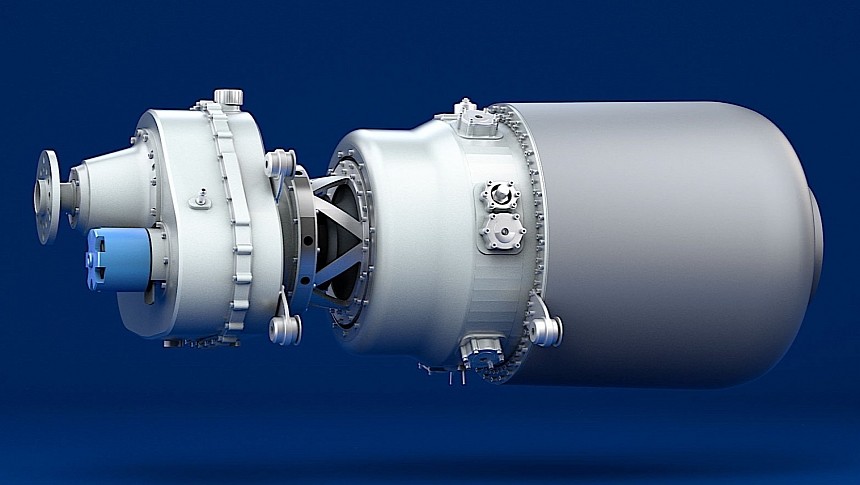The aviation industry is rushing full throttle toward a future when fossil fuels will no longer be used as intensely as they are today, and the industry as a whole will be a lot greener. There are many avenues of research to reach this goal, and news of one that may be a game-changer comes from all the way in Europe.
Several airplane and engine makers are currently researching ways to make the existing powerplants run of Sustainable Aviation Fuel (SAF). Because the stuff is not fundamentally different from an engine's point of view from regular fuels, it is already being adopted on a large scale.
But SAF is not entirely clean (especially given how regulations don't allow aircraft to use only SAF, but a mixture with existing fuels), and that's why some are looking well beyond it, to things like hydrogen, as a truly green solution.
Most of the entities working on hydrogen-powered engines for aircraft are building their hardware from scratch, trying to come up with never-before-seen solutions. But, in a sense, not the Europeans from Turbotech and Safran.
These guys set up in 2022, with help from Elixir Aviation, Air Liquide, and Daher, a program called BeautHyFuel. It's an effort meant to "design and ground test a hydrogen propulsion system rated for light aviation." But not only that, they also plan to "develop a methodology so it can be certified for retrofit."
That's right, retrofit, meaning it could be deployed on existing engines and make them run on hydrogen instead of the usual stuff.
Almost two years have passed since the announcement, and we finally got word of a significant step forward for the project: the testing of the first hydrogen-fueled gas turbine engine.
The procedure took place on January 11 at a facility in Vernon, France, and operated by ArianeGroup. The location was selected because ArianeGroup, Europe's main rocket maker, has quite the experience with hydrogen propulsion.
The engine used for testing was a Turbotech TP-R90 regenerative turboprop, a hardware that normally can run on several kinds of fuels, including Jet-A1, diesel, UL91, AVGAS, and bio-fuel.
This time the engine was fed gaseous hydrogen, and it apparently worked as advertised. We are not told the specifics of the test, but we do know it targeted the behavior of the engine and fuel control system as every stage of a flight, from engine start to full throttle, was simulated.
Testing will continue this year, and next time the TP-R90 is fired up, it will do so using hydrogen coming from a cryogenic liquid storage system.
There is no timetable on when a fully functional hydrogen engine of this kind will be deployed on an actual plane, but its simple existence opens the doors for a much more easier adoption of hydrogen for aircraft. At first, the light ones, and in the not-so-distant future, who knows, even the larger ones.
But SAF is not entirely clean (especially given how regulations don't allow aircraft to use only SAF, but a mixture with existing fuels), and that's why some are looking well beyond it, to things like hydrogen, as a truly green solution.
Most of the entities working on hydrogen-powered engines for aircraft are building their hardware from scratch, trying to come up with never-before-seen solutions. But, in a sense, not the Europeans from Turbotech and Safran.
These guys set up in 2022, with help from Elixir Aviation, Air Liquide, and Daher, a program called BeautHyFuel. It's an effort meant to "design and ground test a hydrogen propulsion system rated for light aviation." But not only that, they also plan to "develop a methodology so it can be certified for retrofit."
That's right, retrofit, meaning it could be deployed on existing engines and make them run on hydrogen instead of the usual stuff.
Almost two years have passed since the announcement, and we finally got word of a significant step forward for the project: the testing of the first hydrogen-fueled gas turbine engine.
The procedure took place on January 11 at a facility in Vernon, France, and operated by ArianeGroup. The location was selected because ArianeGroup, Europe's main rocket maker, has quite the experience with hydrogen propulsion.
The engine used for testing was a Turbotech TP-R90 regenerative turboprop, a hardware that normally can run on several kinds of fuels, including Jet-A1, diesel, UL91, AVGAS, and bio-fuel.
This time the engine was fed gaseous hydrogen, and it apparently worked as advertised. We are not told the specifics of the test, but we do know it targeted the behavior of the engine and fuel control system as every stage of a flight, from engine start to full throttle, was simulated.
Testing will continue this year, and next time the TP-R90 is fired up, it will do so using hydrogen coming from a cryogenic liquid storage system.
There is no timetable on when a fully functional hydrogen engine of this kind will be deployed on an actual plane, but its simple existence opens the doors for a much more easier adoption of hydrogen for aircraft. At first, the light ones, and in the not-so-distant future, who knows, even the larger ones.











